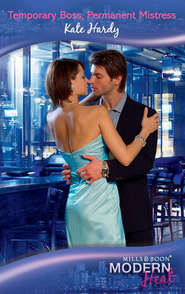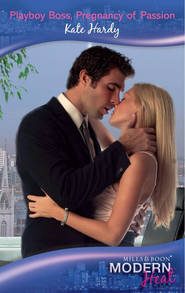По всем вопросам обращайтесь на: info@litportal.ru
(©) 2003-2024.
✖
A Baby Of Her Own
Автор
Год написания книги
2018
Настройки чтения
Размер шрифта
Высота строк
Поля
But supposing—
Supposing nothing. It’s not going to happen.
CHAPTER THREE (#ulink_94d2e3ff-6bdc-56b2-9b5c-65c5f036b5e2)
‘I’M JODIE PRICE,’ she said, extending a hand to the pale-faced woman who was sitting holding a small baby. ‘And this is Dr Taylor, who’s sharing the assessment clinic with me.’ Mr, actually, but she’d learned that it was easier to say ‘Doctor’ than go through all the explanations about when you got high enough up the career ladder, you swapped Dr for plain Mr or Ms. Worried parents weren’t interested in the social niceties: they just wanted reassurance about their sick children. Right now.
She glanced down at her notes. ‘This is Harry, yes?’
The woman nodded.
‘And he’s seven weeks old.’
Tears welled in the woman’s eyes. ‘He’s so small…I thought it was just a cold. And then he couldn’t breathe…’
‘You’re here now and we can help him, Mrs Bartlett,’ Jodie soothed, crouching down beside her and focusing on the baby. ‘Let’s have a look at the little fellow and see what’s going on. Can you tell me a bit about his symptoms? When did you first notice he was ill?’
‘Two days ago. He picked up his sister’s cold—but he wouldn’t feed properly yesterday, only took half what he normally has, and he started coughing. Then, today, he was so quiet…I thought I was probably fussing too much but I took him to the doctor anyway—and she sent me straight here.’
‘To the paediatric assessment unit. I know, it sounds scary, but you’re in the best place,’ Jodie reassured her. ‘All it means is that we’re specialists in babies and children, so we’ll be able to work out what’s wrong with him and how to treat him quicker than your GP can. Now, let’s get this vest and nappy off.’ She quickly undressed the baby, weighed him and measured his length, and noted the details on his chart. ‘He’s a lovely big boy, isn’t he?’
‘Yes. My husband’s tall.’ Mrs Bartlett gulped. ‘He’s parking the car. Laura’s with him.’
‘Laura’s Harry’s sister?’ Jodie guessed.
‘Yes. She’s three and a half.’
‘The perfect age gap. My brother’s nearly four years older than me,’ Jodie said. ‘Young Harry here’s going to hero-worship her from the minute he can toddle. I was just the same with Matt.’ She put a thermometer under the baby’s armpit, and waited until it bleeped, then looked carefully at the reading. ‘That’s good, he doesn’t have a high temperature. Apyrexic,’ she said to Sam, who was writing down what she said.
The baby coughed, and gave a hoarse cry.
‘Lost his voice, has he?’ she asked sympathetically.
Mrs Bartlett nodded. ‘He’s a happy baby anyway, doesn’t normally cry a lot, but now he can’t even tell me when he’s hungry or wet.’
Jodie replaced the baby’s nappy, noting the way the skin underneath the baby’s ribs and the base of his throat sucked in sharply every time he breathed. Pretty much a textbook case. ‘Tracheal tug,’ she said to Sam. She turned to Mrs Bartlett. ‘I’m going to listen to his chest now.’ She placed her stethoscope on Harry’s chest. ‘Hmm, he sounds pretty wheezy. Creps,’ she said to Sam. ‘There are a few bubbles there, Mrs Bartlett—that means there’s lots of mucus clogging up the tubes.’ Gently, she palpated the baby’s abdomen. ‘His abdomen’s fine.’ She took her otoscope, the instrument used for checking the ear canal, and looked in the baby’s ears. ‘Bilateral wax,’ she said to Sam, then turned back to Mrs Bartlett. ‘He’s got a fair bit of wax in both ears—he’s really bunged up with that lurgy, poor love.’
‘It’s just a cold, then?’ Mrs Bartlett looked hopeful.
‘It’s a little more than that, I’m afraid. There’s a rather nasty virus going round called RSV or respiratory syncytial virus. I’ll need to take a sample of his nasal secretions to check if that’s what he has—all I’ll do is put a tube up his nose so we can suck out some of the mucus and send it off to the lab for them to run a few tests. It looks a bit scary but it won’t hurt him,’ she reassured Mrs Bartlett. ‘And then I’ll put a probe on his foot so I can make some more checks. The light goes through his foot and hits the probe—again, it won’t hurt him, because it’s just like having a very soft strap wrapped round his foot—and that helps me measure the oxygen levels in his blood, his pulse rate and his breathing.’ She indicated the machine next to the bed. ‘It’ll probably bleep a lot, but don’t worry—these things don’t take into account the fact that babies tend to wriggle! The minute they move, the alarm goes off—it’ll probably say something like “insufficient light” on the screen, and all that means is that he’s moved so the probe needs to be reset.’
Quickly, Jodie took the sample of the nasal secretions, then wrapped the cuff of the probe round Harry’s foot. As she’d suspected, his oxygen saturation was a little on the low side and his pulse was rapid. ‘Sats eighty-seven in air, pulse a hundred and sixty.’ She watched the child’s chest rise and fall, keeping one eye on the second hand of the clock as she counted his breaths in her head. ‘Resp sixty-five.’ She brushed her fingers momentarily against the baby’s face. ‘You’re having a tough time, little one, but hang on in there. We’ll sort you out. We’re going to admit him for a few days, Mrs Bartlett,’ she said. ‘All the signs are that he’s got bronchiolitis, which is usually caused by RSV. In adults and older children, it just gives you a bad cold and a cough, but in young babies it tends to make them quite poorly.’
‘He’ll be all right, though?’ Mrs Bartlett’s eyes were wide with anxiety.
Jodie nodded. ‘It’s very common—there’s often an epidemic between November and March. We’ve got six babies on the ward with it already, so he’ll be in good company.’ She gently rubbed Harry’s cheek again. ‘You did the right thing in bringing him in to us. He hasn’t got it that badly, though I should warn you that they often get worse before they get better. He’ll be in for somewhere between three and seven days, depending on how he responds to treatment, and he’ll be coughing for a good six to ten weeks after he gets home, maybe even until the clocks go forward.’
‘So you can do something for him?’
Jodie nodded. ‘The problem is that some of his airways are so small—less than a tenth of a millimetre across—so the mucus is gumming him up and making him wheezy. We’ll try giving him a nebuliser—that’s just a mask with a drug in it—to help widen his airways a bit, and he’ll breathe the drug in through a mist of oxygen. That might help him to feed a bit better. We may need to give him some oxygen, too. We’ll do it through a tube under his nose, which looks frightening but won’t hurt him. And if he’s finding it too tiring to feed—bearing in mind he’s having a hard time getting his breath, he’s only got the energy to take a bit of his usual feeds at the moment—we’ll feed him through an nasogastric tube. What that means is a tube goes up his nose and into his stomach, so he’ll get all the goodness he needs without having to work so hard for it.’
Mrs Bartlett looked shocked. ‘Can we—can I stay with him?’
‘Of course you can. He’ll be in a room on his own because the virus is highly infectious and we don’t want it spreading to the other children. There’ll be a notice on his door saying that he’s in isolation nursing, but all that means is that the nurses and doctors will wear a gown and gloves when they come into his room to stop the virus lingering on their clothes or their hands and then spreading to other patients on the ward. This particular virus can live for around twenty minutes outside the body, on clothes, which is why it spreads so quickly.’
‘I see.’
‘There’s a chair-bed in the room, and you’ll be able to use the staff restaurant when the public restaurant’s closed,’ Jodie added. ‘And we have a policy of shared care in the ward, so you’ll know at all times exactly what’s going on, what you can do to help and what we need to do.’
Mrs Bartlett still looked stunned at the idea of her child being hospitalised.
‘There’s a visitor phone on the ward. Parents and visitors answer it, rather than the ward staff, and that means you can take any incoming calls without worrying that you’re stopping important calls coming into the ward. There’s a payphone just outside the assessment unit, too, though I’m afraid we have to bar mobile phones because they could interfere with the equipment,’ Jodie warned.
Mrs Bartlett nodded.
‘Give Harry a cuddle while I finish writing his admission notes,’ Jodie said, ‘and I’ll ask Alice, the dark-haired nurse over there, to take you through to the ward. If your husband and Laura haven’t arrived by the time you go, I’ll make sure someone brings them through to you.’
‘Thank you, Dr Price.’
‘That’s what I’m here for. Alice will give you an information sheet about bronchiolitis and RSV, which should answer most of your questions.’ She smiled. ‘I’m on duty later tonight, so I’ll see you when I do my round and we can have a chat then if you have any other questions or you’re worried about anything.’
When Mrs Bartlett had left, cradling the baby in her arms, Sam turned to Jodie. ‘You’re good with parents. You explained everything to her without being patronising. Well done.’
‘Thank you.’ She was surprised at the compliment. He’d barely spoken to her since he’d dropped her home from Mario’s the previous week, so she’d been dreading it when she’d realised that he was going to be with her on the paediatric assessment unit shift this morning. She’d expected him to pick up every single fault, however minor. Instead, he’d let her get on with it and had only occasionally offered an opinion, phrasing it more as a question so she could show off her own knowledge of the subject.
‘You’re a good doctor, Jodie,’ he said, surprising her even further. ‘Though are you sure about the nebuliser?’
‘I know it’s controversial and some doctors don’t approve of using bronchodilators,’ Jodie said, ‘but if it helps the baby breathe, that’s the most important thing. We’ll trial Atrovent and salbutamol, see which one works best for him. Sometimes they respond to one better than the other.’
Sam grinned. ‘Yes, Dr Price.’
She flushed. ‘Sorry. You already knew that.’ Of course he did. He was a consultant, with a good six years’ more experience than her. Trust her to open her mouth and say something so stupid, just when she was trying to prove to him that she could be a cool, calm and rational colleague.
Not to mention proving to herself that Sam Taylor didn’t make her hormones run amok.
‘I’d always rather you explain yourself than make assumptions,’ Sam said gently, as if sensing her embarrassment. ‘It leaves less room for errors.’
‘Right.’
‘What else have we got in?’ he asked.
‘An asthma attack—when I know the history, I might suggest some skin tests to see if the girl’s allergic to cats or dust mites or any particular sorts of food, and I want to check whether the parents smoke round her—plus two rashes and a possible fracture.’
‘Lead on, Macduff,’ he misquoted with a grin.
Jodie stared at him for a moment, slightly dazed. That grin could only be described as dazzling. What was it about the man? Since Mario’s, he’d as good as avoided her. And just when she’d decided that he was remote, glacial and not worth thinking about, he did or said something that made her look again, see him as a man—a very attractive man, at that. Without that wall of reserve, he’d be devastating.
It couldn’t work out between them. There were too many barriers, social and professional, so why couldn’t she stop that voice in her head telling her to go for it?











